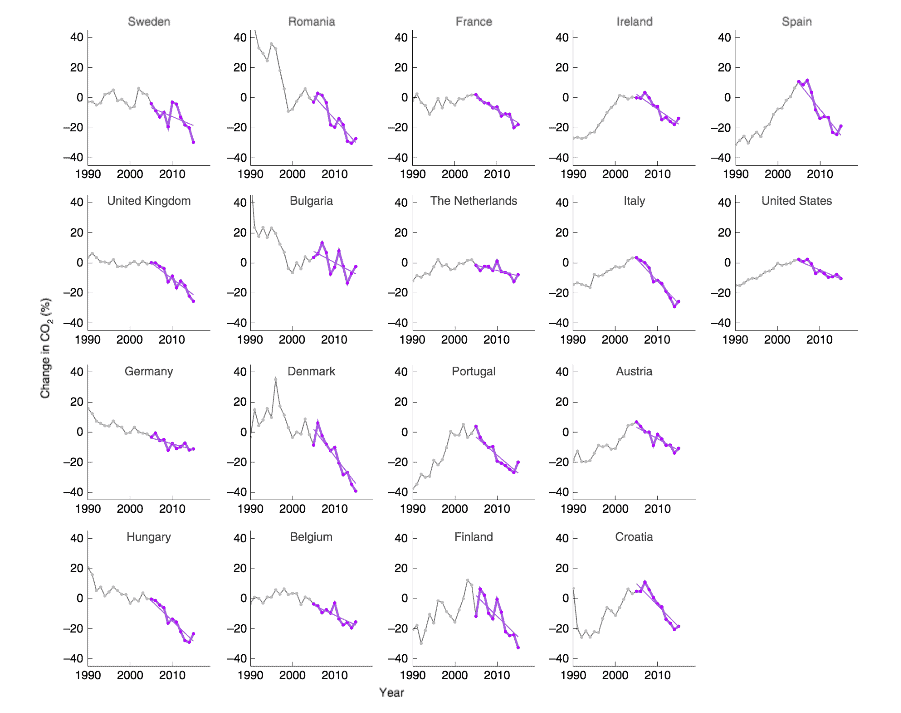It’s not often that good news about CO2 emissions comes around, so when it does—even in small doses—it’s worth noting. This year, researchers delivered such a hit.
In a study published in Nature Climate Change, researchers looked at CO2 emissions from around the world between 2005 and 2015. While on the whole, CO2 emissions rose globally during that time by about 2.2 percent annually, in 18 of the world’s highest-emitting countries (together accounting for 28 percent of global emissions), emissions actually dropped. And though China, which has the highest CO2 emissions in the world, didn’t make that list, even their emissions flatlined. (Let’s not forget, that doesn’t take into account the fact that China is making everyone else’s green technology possible).
The key to the countries’ success, the researchers found, was a combination of new clean energy technology (such as wind and solar, which accounted for 47 percent of the decrease in CO2 levels), and decreased energy use due to energy efficiency regulations and technology, which accounted for 36 percent of the change.

In other words, the technology we’ve been working so hard to implement around the world is actually starting to work. But the other key to the countries’ success was that both the migration to clean energy sources and energy efficiency measures were backed up by strong policies that forced them into play.
In other words, as the study states: “larger reductions in emissions take place when more policies are in place… The large-scale deployment of renewable energy alone is not sufficient to lead to durable emissions decreases; it needs to be delivered within a framework of strong and supportive climate policies.”
For those who feel like more energy efficient appliances or the slow replacement of fossil fuels with clean energy is just a drop in the bucket of what we have to accomplish, this study suggests otherwise.
“Really, this study shows it’s not a mystery. We have the technology: you put the effort in place, you develop the policies, you fund them and then you get emission decreases,” Corinne Le Quéré, one of the study’s authors told the CBC.
“New scientific research on climate change tends to ring the alarm bells ever more loudly,” study co-author Charlie Wilson told the CBC. “Our findings add a thin sliver of hope.”
It’s not time to give up on those never-quite-warm-enough LED bulbs quite yet.






